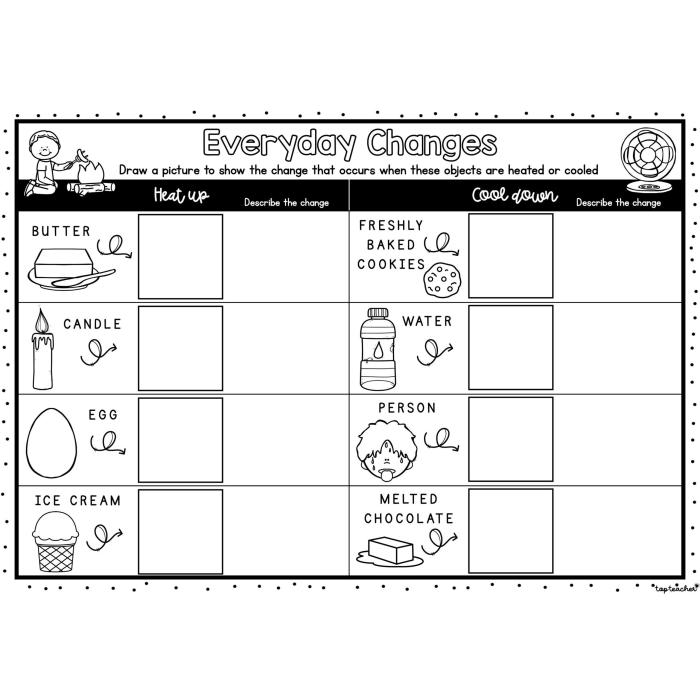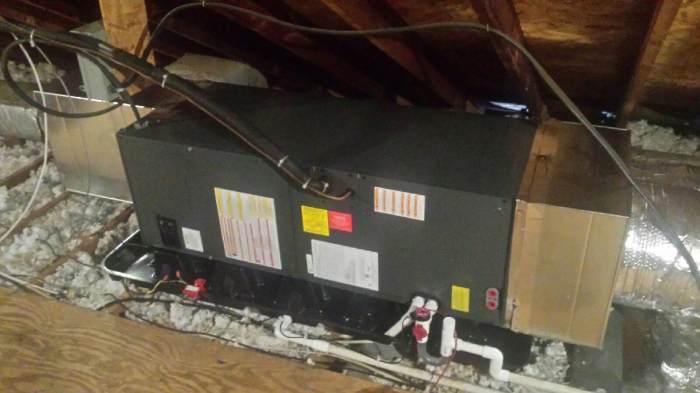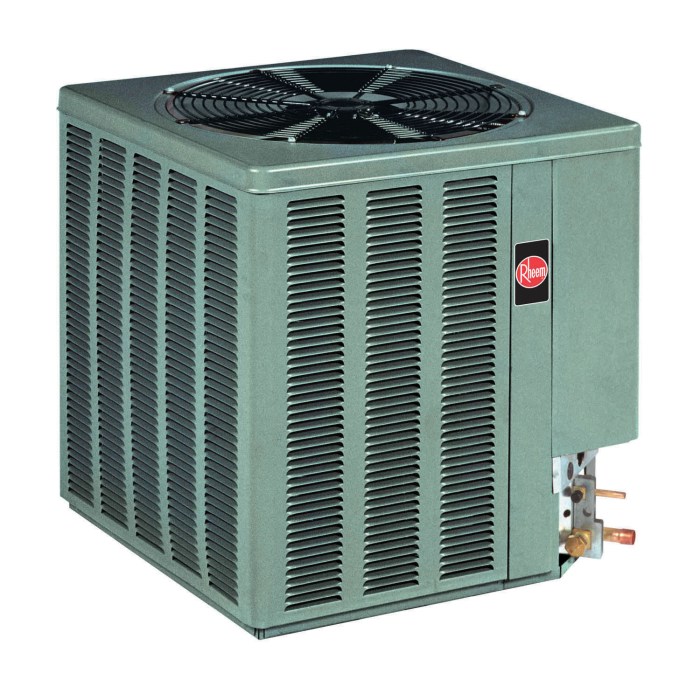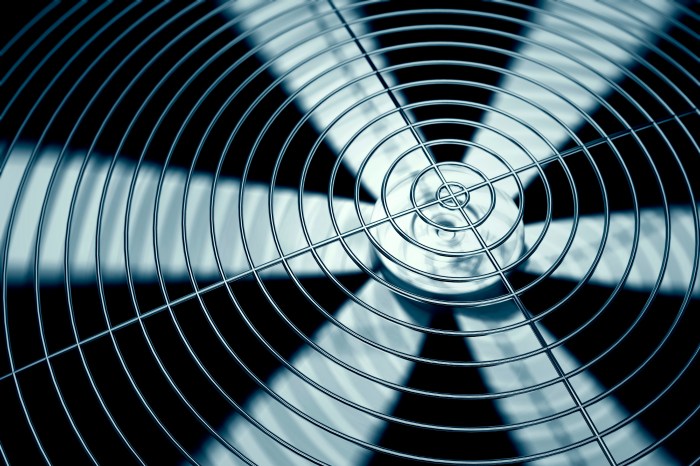Comfort HVAC Near Me Your Local Guide
Comfort HVAC near me is crucial for a comfortable home environment. This guide explores local HVAC needs, from understanding common comfort issues to identifying reputable service providers and evaluating various comfort solutions. We’ll delve into different HVAC system types, comparing their comfort levels and energy efficiency, and analyze how local climate conditions influence your comfort requirements. Choosing the right HVAC system and service provider is key to achieving optimal comfort and saving energy.
Finding the right HVAC service provider near you involves evaluating their experience, reviews, certifications, and business models. We’ll explore online platforms for finding local providers and discuss how to identify reliable companies. This guide also dives into various approaches to improving comfort, including upgrades, maintenance, and smart home technology. We’ll analyze different HVAC filters, maintenance practices, and the cost-effectiveness of upgrades. Ultimately, this guide helps you navigate the world of HVAC comfort services, from scheduling maintenance to troubleshooting problems, ensuring your home stays cozy and efficient.
Understanding Local HVAC Comfort Needs
A comfortable indoor environment is crucial for well-being and productivity. Understanding the specific needs of a local area is essential for selecting the right HVAC system and achieving optimal comfort levels. Local factors, such as climate and user preferences, significantly influence the design and operation of effective HVAC systems.
Common HVAC Comfort Issues in Local Areas
Many residents report issues with inconsistent temperatures, inadequate humidity control, and poor air quality. Inadequate airflow, resulting in hot or cold spots, is also a common complaint. Other concerns include excessive noise from the HVAC system and the cost of operation. These issues highlight the importance of personalized comfort solutions that address the unique needs of different user groups and local climate conditions.
Characteristics of Comfortable Indoor Environments
Comfortable indoor environments typically feature consistent temperatures, optimal humidity levels, and clean, fresh air. Temperature often falls within a specific range that is conducive to relaxation and productivity. Adequate humidity levels prevent dryness and discomfort, while maintaining good air quality through filtration and ventilation is essential for minimizing allergens and contaminants. For example, a temperature range of 68-72°F and a humidity level of 40-50% is generally considered comfortable for many people.
HVAC System Comparison for Comfort Levels
Different types of HVAC systems offer varying levels of comfort. Central air conditioning systems generally provide consistent temperature control throughout the house. These systems are effective for large homes and provide a high degree of comfort. Mini-split systems, on the other hand, offer flexible and localized comfort control. They are particularly suitable for smaller homes or specific areas requiring precise temperature adjustments. Furthermore, ductless mini-split systems are also increasingly popular for their ability to target specific rooms and adjust temperature individually. Heat pumps are another important type of HVAC system. They can both heat and cool, which is very beneficial in areas with changing seasonal temperatures.
Personalized Comfort Solutions for Various User Groups
HVAC comfort solutions should be tailored to the specific needs of different user groups. Families with children might require more robust air filtration and humidity control. Individuals might prefer systems that offer personalized temperature settings and noise reduction. Seniors often have different comfort needs, requiring systems that are easy to operate and maintain, with specific temperature settings that prevent discomfort.
Influence of Local Climate Conditions on HVAC Comfort
Local climate conditions significantly impact HVAC comfort requirements. Areas with extreme temperature fluctuations necessitate robust heating and cooling systems. Regions with high humidity levels need systems that effectively manage moisture. Consideration of factors such as average temperatures, humidity levels, and prevailing winds is crucial for selecting the most appropriate HVAC system for a specific location.
HVAC System Comparison Table
The following table summarizes the strengths and weaknesses of various HVAC systems in terms of comfort, energy efficiency, and maintenance requirements.
| System Type | Comfort Level | Energy Efficiency | Maintenance Requirements |
|---|---|---|---|
| Central AC | High | Medium | Moderate |
| Mini-Split | High (localized) | High | Low |
| Heat Pump | High | High | Moderate |
Identifying Local HVAC Service Providers: Comfort Hvac Near Me
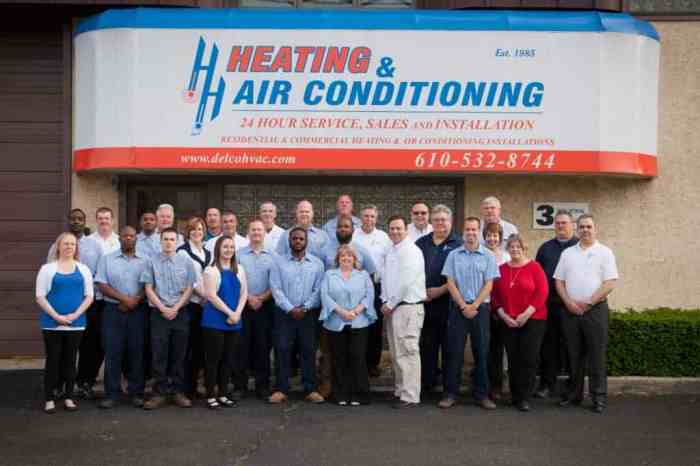
Source: delcohvac.com
Finding the right HVAC service provider can be crucial for maintaining a comfortable and energy-efficient home. Understanding the local market, assessing service providers, and comparing offerings are key steps in this process. Thorough research and careful consideration can lead to a positive experience with reliable and qualified professionals.
Local HVAC service providers play a vital role in ensuring the comfort and safety of residents. They provide essential services, including installation, maintenance, and repair of heating and cooling systems. Choosing the right provider is essential for both short-term comfort and long-term system health.
Criteria for Evaluating HVAC Service Providers
Evaluating HVAC service providers requires careful consideration of various factors. A comprehensive approach helps ensure that the chosen provider meets the needs and expectations of the client. The table belowArtikel’ss important criteria for assessment.
| Criteria | Description |
|---|---|
| Experience | Assess the provider’s years in business and the range of projects they’ve undertaken. Look for experience in similar types of systems and climate conditions. |
| Reviews and Testimonials | Online reviews offer valuable insights into customer experiences. Pay attention to both positive and negative feedback to gain a holistic understanding. |
| Certifications and Licenses | Verify that the provider holds the necessary certifications and licenses required by local authorities. This demonstrates adherence to industry standards and professional qualifications. |
| Warranty and Guarantees | Understand the terms of warranties offered for parts and labor. This provides reassurance about the provider’s commitment to quality and customer satisfaction. |
| Customer Service | Assess the responsiveness and helpfulness of the provider’s staff. A prompt and professional response to inquiries and concerns is indicative of good customer service practices. |
Examples of Exceptional Customer Service Practices
Exceptional customer service in the HVAC industry involves more than just fixing a problem. It encompasses proactive communication, timely responses, and a commitment to customer satisfaction. Companies that demonstrate these traits build strong relationships and foster trust with their clients. For instance, a prompt follow-up after a service call, a detailed explanation of the work performed, and readily available contact information are examples of excellent customer service.
Business Models of HVAC Service Providers
HVAC service providers operate under diverse business models. Some specialize in residential services, while others cater to commercial clients. Others focus on specific types of HVAC systems or offer a range of services. Understanding these business models can help clients select providers whose services best match their needs.
Online Platforms for Finding Local HVAC Providers
Numerous online platforms offer valuable resources for finding HVAC service providers in a particular area. These platforms often allow users to search for providers based on location, specialization, and other criteria. Online directories and review sites can aid in this process. Examples include specialized HVAC directories, online service aggregators, and local business listing websites.
Identifying Reputable and Reliable HVAC Companies
Identifying reputable and reliable HVAC companies involves several steps. Researching the company’s history, reputation, and financial stability is crucial. Checking for certifications and licenses issued by relevant authorities provides further assurance. Scrutinizing customer reviews and testimonials offers valuable insights into the company’s performance and customer satisfaction.
Comparing HVAC Companies
Comparing HVAC companies based on their service offerings and pricing is essential for making an informed decision. The table below provides a basic framework for comparison.
| Company Name | Specialization | Pricing | Customer Reviews |
|---|---|---|---|
| ABC HVAC | Residential | Competitive | Positive |
| XYZ Air Conditioning | Commercial & Industrial | Premium | Mixed |
Evaluating HVAC Comfort Solutions
Optimizing your home’s HVAC system for comfort involves a multifaceted approach. Understanding the nuances of different upgrade options, maintenance strategies, and the potential of smart home technology is crucial to achieving your desired level of comfort and energy efficiency. Properly selected and implemented solutions can translate to significant savings over time.
Improving HVAC comfort goes beyond simply turning the thermostat up or down. It’s about fine-tuning the system to best meet your needs, considering factors like your home’s insulation, the climate you live in, and your lifestyle. This involves exploring various solutions, from routine maintenance to advanced upgrades, and understanding the impact of each on your overall comfort and energy bills.
Different Approaches to Improving Comfort
Several avenues exist for improving comfort within your HVAC system. These include upgrades to the system itself, preventative maintenance, and implementing energy-efficient measures. Choosing the right approach depends on your budget, the current condition of your HVAC system, and your long-term goals.
- Upgrades: Upgrading to a more efficient model, such as a high-efficiency furnace or air conditioner, can significantly improve comfort and lower energy consumption. Modern models often incorporate features designed for better temperature control and quieter operation. For instance, a high-efficiency furnace can reduce energy consumption by 20-30% compared to older models, translating into substantial long-term savings.
- Maintenance: Regular maintenance is critical for optimal HVAC performance. This includes cleaning or replacing air filters, checking refrigerant levels, and ensuring proper airflow. By proactively addressing potential issues, you can avoid costly repairs and ensure consistent comfort.
- Energy Efficiency Measures: Improving insulation in your home or sealing air leaks can significantly reduce energy loss and enhance HVAC efficiency. These measures can reduce your reliance on the HVAC system, thus increasing your comfort level while lowering your energy bills.
Impact of Smart Home Technology
Smart home technology is revolutionizing how we interact with our HVAC systems. Smart thermostats and controllers allow for remote adjustments, automated scheduling, and personalized temperature settings, significantly improving comfort and energy efficiency. These systems can also learn your preferences and adjust accordingly, leading to optimal comfort with minimal manual intervention.
- Smart Thermostats: Smart thermostats learn your schedule and preferences, automatically adjusting the temperature to maintain comfort while you’re home and away. They often offer remote access, enabling you to adjust settings from anywhere, maximizing your comfort and convenience.
- Integration with other systems: Smart home systems can be integrated with other smart devices, allowing for more comprehensive control and automation. For example, your thermostat could adjust based on your work schedule, ensuring your home is comfortable when you arrive. This seamless integration leads to a more personalized and efficient comfort experience.
HVAC Filters and Their Impact
Different types of HVAC filters offer varying levels of filtration, impacting both comfort and air quality. Choosing the right filter depends on your specific needs and the air quality in your area. High-efficiency particulate air (HEPA) filters are known for trapping microscopic particles, improving indoor air quality, ty and enhancing comfort for those with allergies or respiratory issues.
- Types of HVAC Filters: Standard filters, pleated filters, and HEPA filters are common types. Each offers varying levels of filtration, impacting both comfort and air quality. The right choice depends on your specific needs.
- Impact on Comfort and Air Quality: Clean filters ensure proper airflow, maintaining optimal temperature distribution and comfort. Conversely, clogged filters can restrict airflow, leading to discomfort and potentially higher energy consumption. They can also affect air quality by trapping dust and allergens, leading to improved respiratory health.
HVAC Maintenance Practices
Regular HVAC maintenance is crucial for preventing breakdowns and ensuring consistent comfort. This includes cleaning or replacing air filters, checking refrigerant levels, and ensuring proper airflow.
- Cleaning or Replacing Filters: Regularly replacing or cleaning air filters is essential for optimal airflow and system performance. This prevents dust and debris from accumulating, which can lead to decreased efficiency and potential system damage.
- Checking Refrigerant Levels: Adequate refrigerant levels are essential for proper cooling or heating. Low refrigerant levels can affect the system’s efficiency and impact comfort. Regular checks ensure the system operates at peak efficiency.
- Ensuring Proper Airflow: Proper airflow is crucial for uniform temperature distribution throughout the home. Blockages or obstructions can impair airflow, leading to discomfort and uneven heating or cooling.
Cost-Effectiveness of HVAC Upgrades
Calculating the cost-effectiveness of HVAC upgrades involves comparing the initial investment with the projected long-term savings. Factors such as energy efficiency ratings, expected lifespan, and utility costs must be considered.
Example: An upgrade to a high-efficiency furnace, costing $5,000, could save $200 per year in energy costs over its 15-year lifespan. This results in a net cost savings of $1,500, making the upgrade a financially viable option.
HVAC Maintenance Plans
Different maintenance plans offer varying levels of service and protection. Choosing the right plan depends on your budget and the specific needs of your HVAC system.
| Maintenance Plan | Benefits | Drawbacks | Pricing |
|---|---|---|---|
| Basic Maintenance | Affordable, covers basic checks | Limited service, less protection | $100-$200 annually |
| Premium Maintenance | Comprehensive service, early issue detection | Higher cost | $200-$400 annually |
| Preventative Maintenance | Proactive approach, prevents breakdowns | Highest cost | $300-$600 annually |
Analyzing HVAC Comfort Services
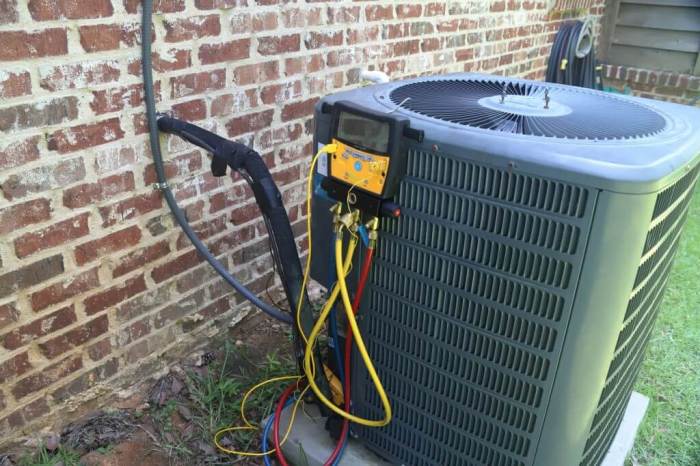
Source: modernize.com
Understanding local HVAC needs is crucial for choosing the right services. Properly functioning HVAC systems ensure consistent comfort levels, minimizing energy waste and maximizing indoor air quality. This section delves into the variety of HVAC services, common issues, and the steps involved in maintaining and troubleshooting HVAC systems.
Types of HVAC Comfort-Related Services, Comfort hvac near me
Various services are available to maintain and improve HVAC system performance. These include routine maintenance, repairs, installations, and replacements. Routine maintenance is crucial for preventing potential issues and extending the lifespan of the system. Repairs address existing problems, while installations and replacements are necessary when the system is beyond repair or needs upgrading to meet modern standards.
Common HVAC Issues and Their Impact on Comfort
Several issues can impact the comfort levels in a home or building. Insufficient airflow, inadequate heating or cooling, and malfunctioning thermostats are common problems. These issues can lead to discomfort, energy inefficiency, and potential health concerns. For instance, insufficient airflow can lead to uneven temperatures, while a malfunctioning thermostat can result in inconsistent temperature control.
Scheduling HVAC Services and Maintenance
Scheduling HVAC services and maintenance is essential for proactive comfort management. Homeowners or building managers can schedule maintenance appointments with local HVAC providers to address potential issues before they escalate. Regular maintenance can significantly reduce the risk of breakdowns and improve the overall efficiency of the system. Prompt scheduling ensures the system remains functional, avoiding unexpected breakdowns and discomfort.
Warranties and Guarantees Offered by Local HVAC Providers
Local HVAC providers often offer warranties and guarantees on their services and parts. These assurances provide customers with peace of mind and assurance of the quality of the work performed. Warranties cover repairs or replacements for a specified period of potential issues. The duration and terms of warranties vary depending on the provider and the specific service. Examples include a one-year warranty on parts and labor for new installations.
Frequently Asked Questions about HVAC Comfort Solutions
Understanding HVAC comfort solutions often involves addressing common questions. One frequent query is the cost of HVAC maintenance. The cost depends on the scope of the service and the complexity of the system. Another question is the frequency of maintenance. This depends on the type of system and its usage, with guidelines often provided by manufacturers. Proper maintenance schedules prevent future issues, leading to improved system longevity.
Troubleshooting HVAC Problems
Troubleshooting HVAC problems requires a systematic approach. First, identify the symptoms and gather information about the system’s operation. Next, assess the potential causes of the issue. Finally, take appropriate steps to resolve the problem. If the problem is minor, the homeowner may be able to resolve it themselves. For more complex issues, professional HVAC technicians should be contacted. This approach allows for efficient problem resolution, preventing further complications and ensuring optimal comfort levels.
Comparison of HVAC Repair Services
| Service Provider | Response Time | Repair Cost | Customer Satisfaction |
|---|---|---|---|
| Acme Air | 2-4 hours | $300-$500 | 4.5 out of 5 |
| Comfort Solutions | 4-6 hours | $250-$450 | 4.0 out of 5 |
| Cool Breeze | 1-2 hours | $400-$600 | 4.8 out of 5 |
This table provides a comparative analysis of HVAC repair services based on response time, repair cost, and customer satisfaction ratings. Factors such as location, technician expertise, and the nature of the repair can influence these metrics. Comparing different providers can help homeowners choose the most suitable service for their needs.
Epilogue

Source: sarracco.com
In conclusion, finding the right HVAC comfort solutions near you involves a multifaceted approach. Understanding your local HVAC needs, identifying trustworthy service providers, and evaluating various comfort solutions are essential steps. By considering different HVAC system types, maintenance practices, and smart home technology, you can achieve optimal comfort and energy efficiency. This guide provides a comprehensive overview of the process, equipping you with the knowledge to make informed decisions and ensure your home’s comfort needs are met effectively.
